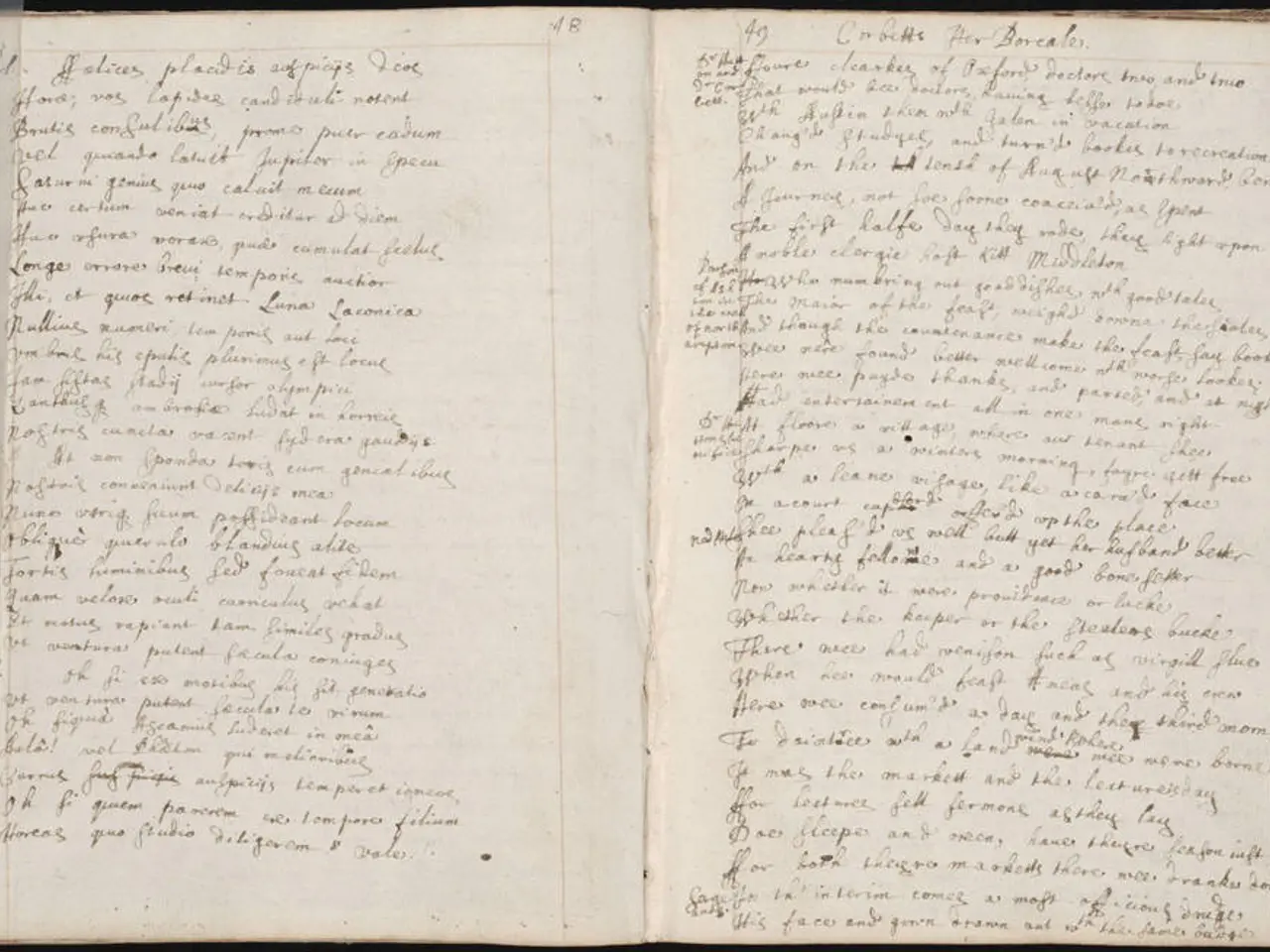Guidance for Composing Thematic Essays: Practical Advice with an Example on How to Craft a Thematically Focused Essay
Writing a thematic analysis essay can be an exciting journey into the depths of literature and its themes. Here's a straightforward guide to help you navigate this process effectively.
First, choose a theme that captures your interest and is clearly present within a work or dataset. For instance, you might delve into the theme of revenge in a literary text or examine recurring motifs in qualitative research. It's essential to have a solid understanding of the text or data you are analyzing to identify key themes.
Next, formulate a clear and concise thesis statement that encapsulates your main argument about the theme. This statement serves as the essay’s guiding claim, connecting your evidence and analysis coherently. For example, a thesis might argue how a theme reveals cultural values or character motivations.
After that, create a structured outline grouping your main points logically, often by different aspects or manifestations of the theme. A typical structure involves an introduction with a thesis, body paragraphs each focusing on a single thematic element supported by evidence, and a conclusion summarizing insights.
Finally, write and revise your essay, elaborating on your thesis with textual or data-based evidence, analyzing how this supports your thematic interpretation. Ensure each paragraph is focused, coherent, and transitions smoothly to the next. Revise for clarity, logical flow, and academic style.
Some potential thematic essay topics could include:
- Analyzing the theme of family in Amy Tan's 'The Joy Luck Club'
- Exploring the theme of the human condition in sci-fi films
- Analyzing themes of injustice in Langston Hughes' poetry
- The theme of nature's beauty in Wordsworth's poetry
- The themes of death and mortality in Emily Dickinson's poems
- The theme of good vs. evil in J.R.R. Tolkien's 'Lord of the Rings'
- Analyzing the theme of crime/punishment in noir films
- Themes of prejudice and racism in Harper Lee's 'To Kill a Mockingbird'
- Exploring father-son relationships as a theme in Arthur Miller's 'Death of a Salesman'
- The themes of power and corruption in Shakespeare's 'Macbeth'
- The theme of individuality vs. conformity in Ray Bradbury's 'Fahrenheit 451'
- The theme of lost love in sonnets by William Shakespeare
- Exploring themes of heroism in superhero movies
This systematic approach ensures your thematic analysis essay is coherent, insightful, and academically sound. Remember, choosing a specific work or set of works that have thoroughly explored the theme is essential for maintaining a focused essay. Additionally, the essay conclusion restates the thesis and summarizes how the analysis reveals the thematic statement's broader implications.
Happy writing!
References: [1] Purdue Online Writing Lab. (n.d.). Thematic Analysis. https://owl.purdue.edu/owl/subject_specific_writing/literature_and_language/narrative/thematic_analysis/ [2] University of North Carolina at Chapel Hill. (n.d.). Thematic Analysis. https://guides.lib.unc.edu/c.php?g=175373&p=1188632 [3] University of California, Los Angeles. (n.d.). Thematic Analysis. https://www.library.ucla.edu/libraries/lib/research/tutorials/thematic-analysis [4] University of California, Berkeley. (n.d.). Writing a Thematic Analysis Essay. https://guides.lib.berkeley.edu/c.php?g=377731&p=2591079 [5] Stanford University. (n.d.). Writing a Thematic Analysis Paper. https://web.stanford.edu/class/archive/english/english1c/eng1cw16/thematicanalysis.pdf
Engaging in a thematic analysis essay not only delves into literature's profound themes but also encourages personal growth and self-development through critical thinking and interpretative skills. By employing this method, one can enhance their understanding of diverse perspectives, cultural values, and human emotions, just like exploring a well-crafted pathway for education and self-improvement.
Additionally, the process of writing a thematic analysis essay fosters academic competencies, such as research skills, analytical reasoning, and effective communication, resulting in a polished and insightful piece of work that could be an essential addition to one's educational portfolio.




